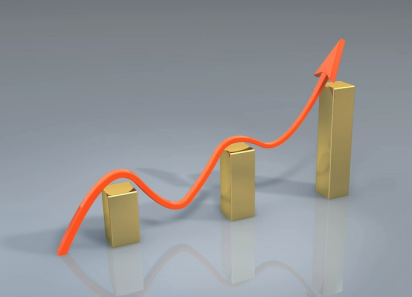Two factors will prevent a stock market correction, Goldman Sachs says

- Goldman Sachs strategist David Kostin said subdued optimism and a strong consumer will stand in the way of a stock market correction.
- Kostin has a 2,400 target on the S&P 500 this year, implying a 2.5 percent decline from Friday's close.
- Pessimists worry that stretched valuations, tighter Fed policy and other factors will lead to a correction.
There's little chance of a stock market slide anytime soon essentially because investors are so worried that one might be coming, according to a Goldman Sachs analysis.
Correction calls have abounded lately, based at least in some part because it's been so long since one has occurred. The S&P 500 has gone 14 months without a 5 percent drop and 19 months since the last full-blown correction, or drop of 10 percent.
Goldman analysts, who have been skittish about market values all year, believe the streaks will continue.
One of two key factors the firm cites is that investors now are fearful, thus negating any worries about the kind of euphoria that can kill a bull market.
"Investors today are situated between skepticism and optimism," David Kostin, Goldman's chief U.S. equity strategist, said in a report for clients. "'Tormented bulls' best describes investor mentality."
Kostin's position is interesting in that his year-end S&P 500 target is 2,400, which would imply a 2.5 percent drop from Friday's close. He cites plenty of reasons for investors to fear the market could slide, but doesn't believe taken together they will cause a major sell-off. Among the issues are deceptively low volatility, stretched valuations, an aging economic expansion, tightening Fed policy, falling bond yields and political uncertainty.
However, he said the factors converging into a correction is a "low-probability event" because of subdued market sentiment and strong consumer spending, which accounted for 69 percent of GDP as of the second quarter.
Indeed, retail investors remain wary of the market on a number of fronts. The latest American Association of Individual Investors survey shows bullishness at just 29.3 percent, well below the long-term average of 38.5 percent. Bears, meanwhile, are at 35.7 percent, above the historical 30.5 average, while neutral sentiment is at 35 percent, 4 percentage points above the norm.
Longer-term investors have pulled $81.1 billion out of stock-based mutual funds this year, according to Bank of America Merrill Lynch, though ETFs have more than offset that total with $291.7 billion in inflows.
The consumer also has shown resiliency, with retail sales rising a higher-than-expected 0.6 percent in July, the best move of 2017.
Kostin is not alone in believing that the market is being supported by a solid base.
"While most are focused on the modest tightening moves being implemented by the Federal Reserve, investors should take note of the significant economic stimulus being provided by a much weaker U.S. dollar and much lower bond yields since year-end," said Jim Paulsen, chief investment strategist at the Leuthold Group. "Undoubtedly, the stock market will decline at some point, but most likely only when its underlying economic fundamentals falter."
From CNBC
